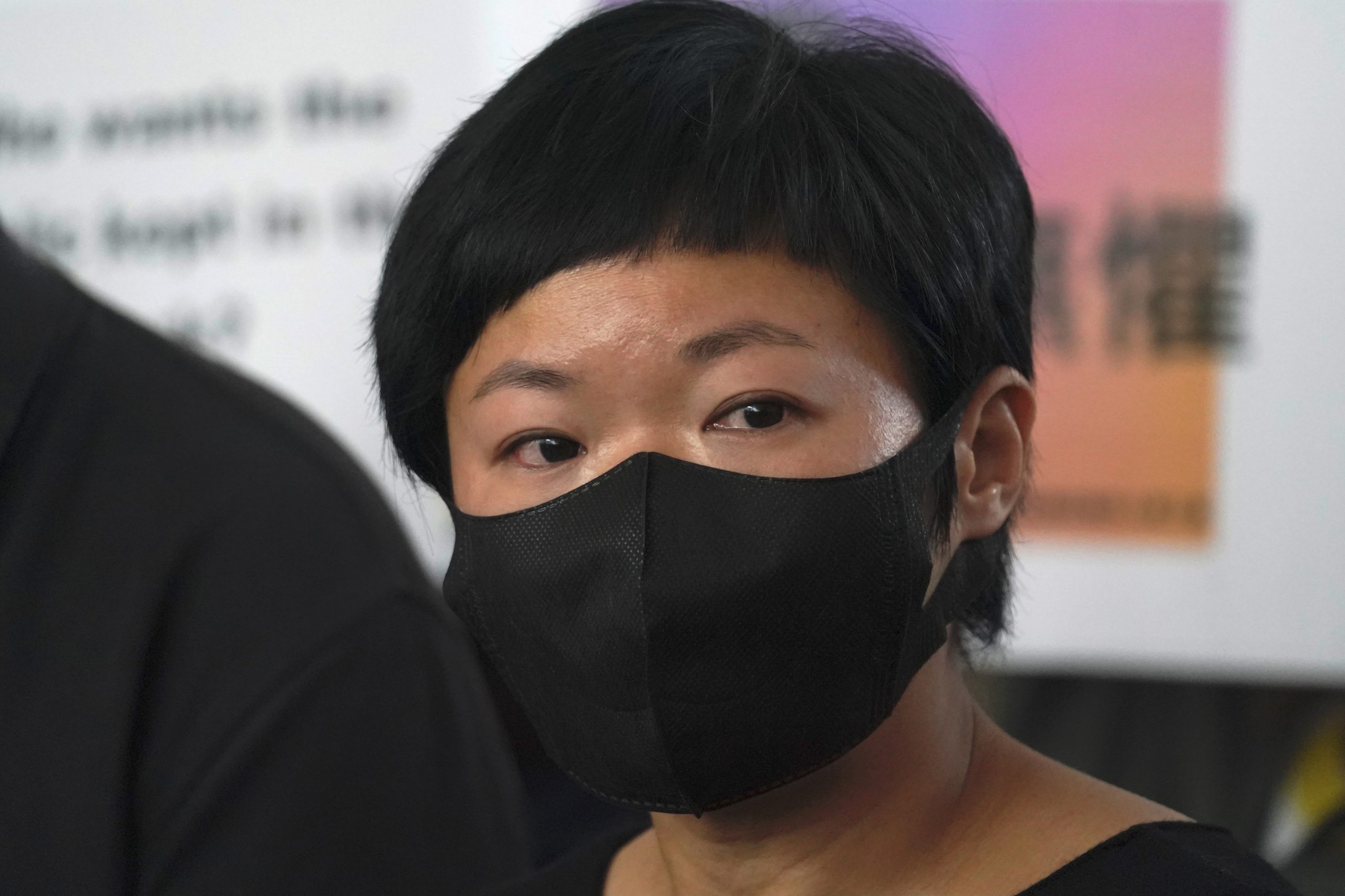© Photo by AP Photo/Kin Cheung
An award-winning Hong Kong journalist – Bao Choy – was convicted just for accessing a public vehicle registration database in a case that sets a dangerous precedent for press freedom in Hong Kong.
TrialWatch—part of the Clooney Foundation for Justice—said the defendant’s appeal of her conviction is a vital test for the judiciary in Hong Kong, as it released its Fairness Report highlighting several violations of Bao Choy’s rights during her one-day trial.
Bao Choy was convicted on April 22, 2021. She had been charged with making “false statements” when she accessed the database to identify vehicles used at the scene of an attack on pro-democracy protestors in July 2019 at the Yuen Long subway station. Based on her investigation (and through the database), she identified several undercover police officers and other government officials at the scene. Her investigation for Radio Television Hong Kong (RTHK), a public broadcasting service, resulted in an award-winning documentary.
“If left uncorrected, this prosecution will set a dangerous precedent for press freedom in Hong Kong,” said a TrialWatch expert – an internationally recognized expert in media law who has reviewed all the relevant data relating to the case but whom we are not identifying because of ongoing security concerns.
“The authorities shouldn’t stretch the law to try to silence journalists who report on government authorities. Instead, they should respect journalists’ role in informing the public, which is critical to a functioning democracy.”
Hong Kong journalists have regularly used this and other public databases in connection with their work and this new application of the law appears to be an attempt to criminalize reporting critical of government authorities.
The report, by a member of TrialWatch’s Expert Panel, finds that the “impact of Bao Choy’s conviction is felt not only by Bao Choy herself but also by the press community and general public who are served by free and open reporting on matters of public concern, and in particular, on matters concerning public servants.”
Background
The conviction of Bao Choy comes amidst rapidly escalating concerns about censorship and the state of freedom of expression in Hong Kong, especially since the introduction of the National Security Law in July 2020.
On November 3, 2020, Bao Choy was arrested and released on bail the same evening. She was charged under Section 111(3) of the Road Traffic Ordinance, which makes it an offense to “knowingly make[] any statement which is false” for purposes relating to vehicle registration. During Bao Choy’s trial, the Court found she had “knowingly” made false statements on the online form used to access the vehicle registration database through which she identified the ownership of the vehicles at the scene of the Yuen Long subway attack. She selected “other traffic and transport-related matters” to access the data as a previously available option titled “other” was no longer available. A similar case against a pro-government journalist was dismissed after Bao Choy’s conviction, adding further concern that hers was a selective prosecution. Bao Choy said she is appealing her case because “more and more voices are being extinguished, it seems Hongkongers are getting used to not being able to speak up.”
In the fall of 2019, she worked with RTHK to produce a documentary on the mob attack against pro-democracy activists and other commuters at the Yuen Long metro station. The attack took place at the height of the 2019 pro-democracy protests and appeared to have been orchestrated by a group of pro-Beijing government supporters. News reports at the time suggested the police response was slow, raising concerns regarding potential complicity. While a senior Government official apologized for the police handling of the incident in the immediate aftermath, the authorities’ own description of the event shifted dramatically over the year, with officials eventually calling the attack a “gang fight” and police denouncing the initial apology.
More broadly, RTHK’s reporting on the 2019 protests has brought it into conflict with the Hong Kong government. In February 2021, the government announced an overhaul of RTHK, replacing journalists with pro-government bureaucrats in management positions. The new pro-government head of RTHK started at RTHK on March 1, 2021, the first day of bail hearings in the “democratic primary” case against 47 pro-democracy opposition leaders and activists, which TrialWatch is also monitoring. Bao Choy’s documentary, “7.21 Who Owns the Truth,” won Hong Kong’s Kam Yiu-yu Press Freedom Award the day before her verdict was announced, but RTHK did not accept the award. On May 6, 2021, the documentary received a Human Rights Press award. RTHK has continued to cancel programming considered to be ‘controversial’ and critical of authorities and recently ended contracts with several of its political commentators.
Bao Choy is not the only reporter facing charges in Hong Kong. During the same week that she was arrested, two other journalists were arrested and charged with police obstruction for actions during the 2019 protests.
The journalist community in Hong Kong is watching the appeal in Bao Choy’s case closely to see how the judiciary will respond to the rapidly accelerating crackdown on press freedom over the past year, which has included the arrest of media mogul Jimmy Lai and other staff from his pro-democracy outlet, Apple Daily, on national security charges as well as the ultimate closure of Apple Daily in June 2021; visa denials for foreign journalists; and censorship and government efforts to exert control over the media.
TrialWatch is also monitoring several other trials in Hong Kong and will be releasing further reports on these cases. Experts for forthcoming reports include human rights lawyer Beatrice Mtetwa of Zimbabwe, Rebecca John, Senior Advocate at the Supreme Court of India, and national-security lawyer Phil Spector of the United States.
See full Fairness Report here.
